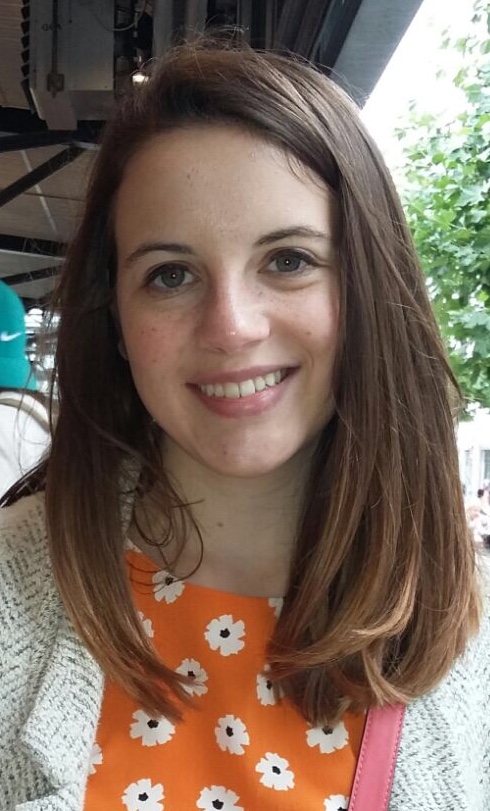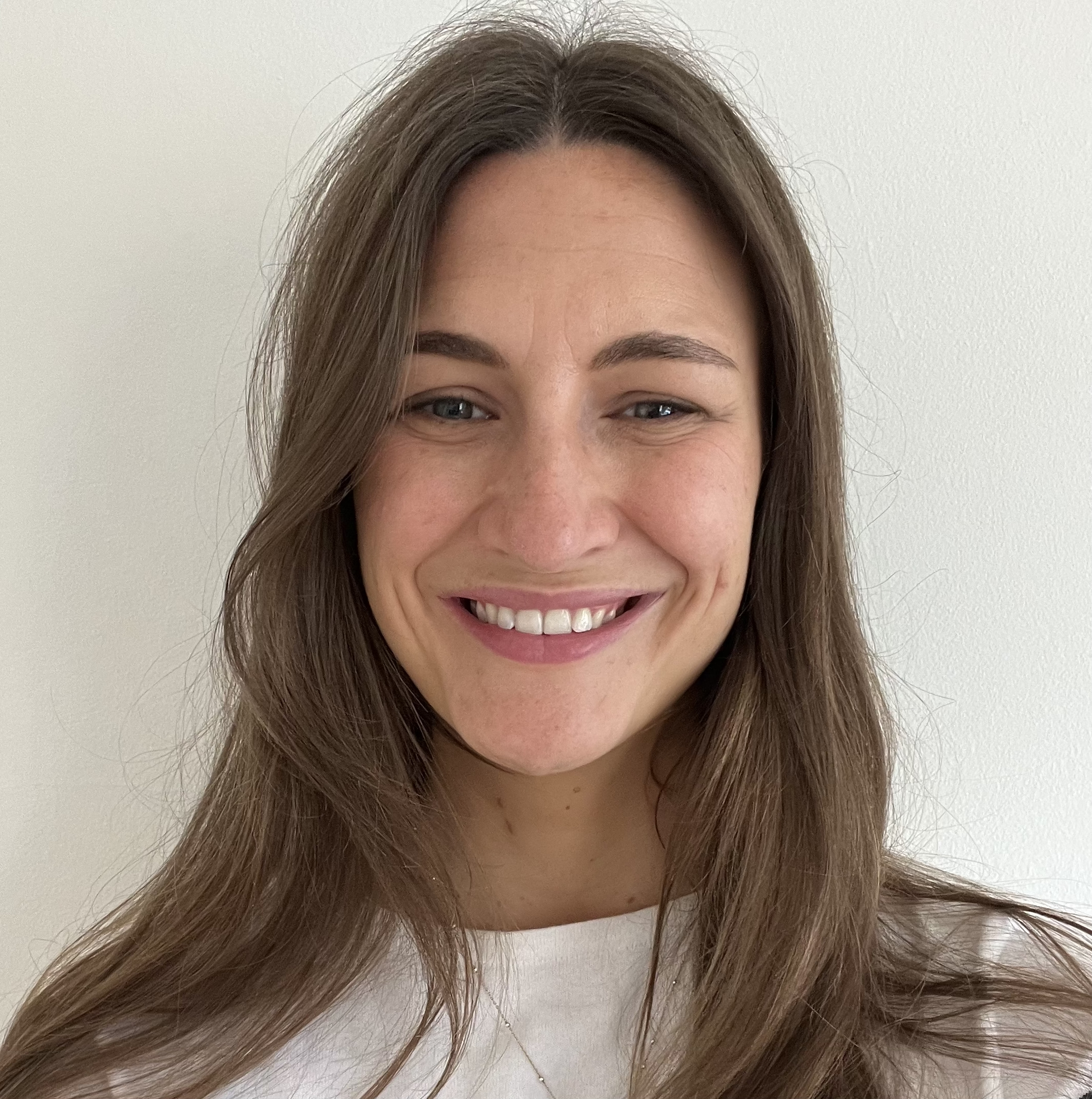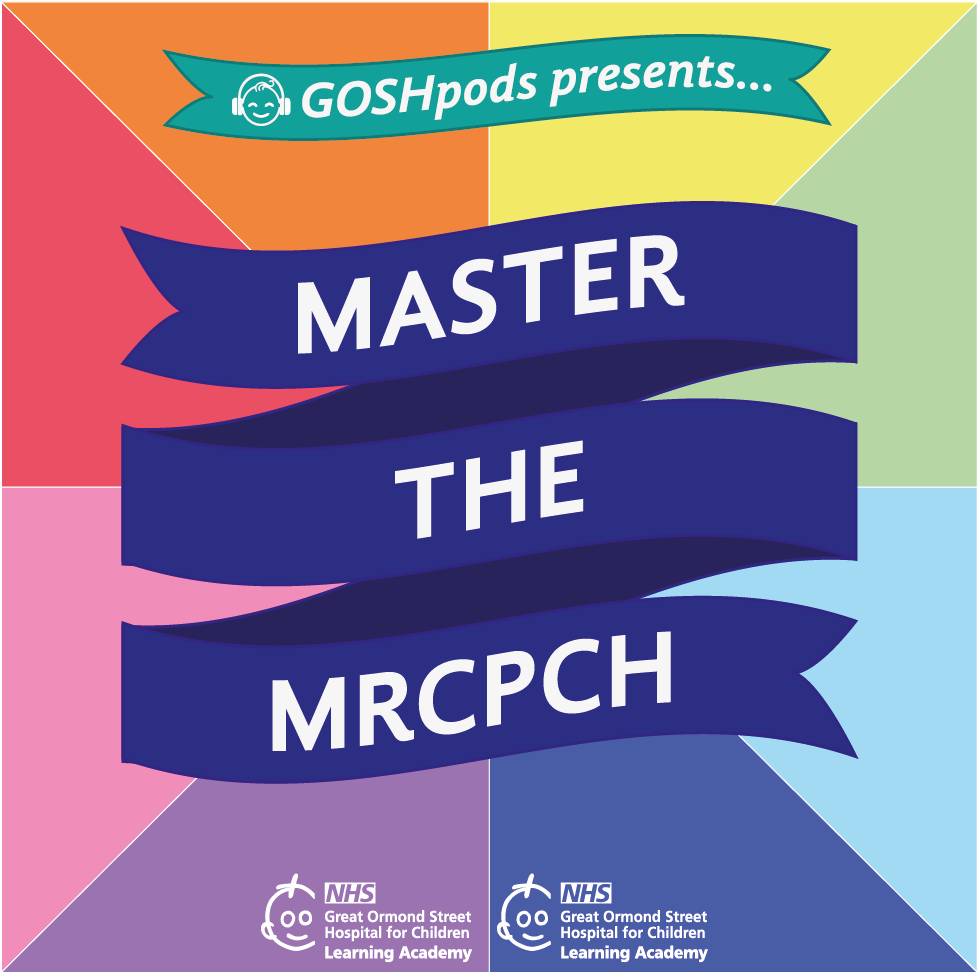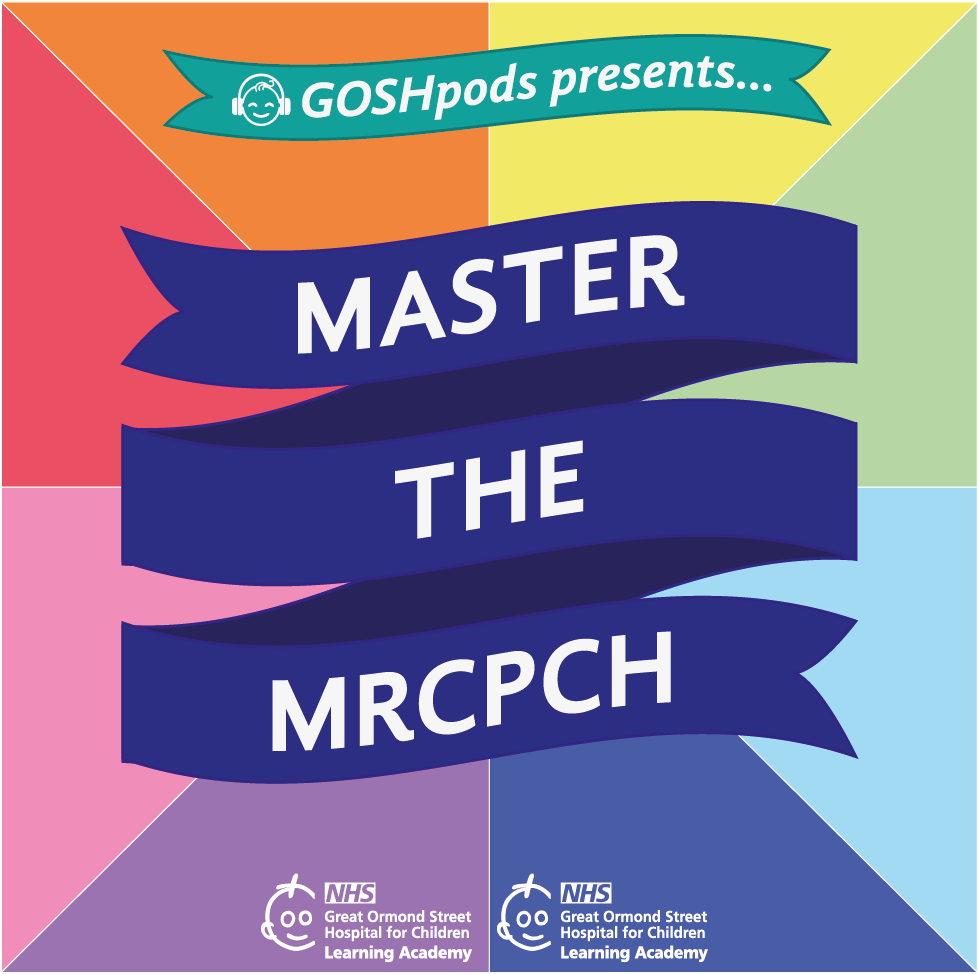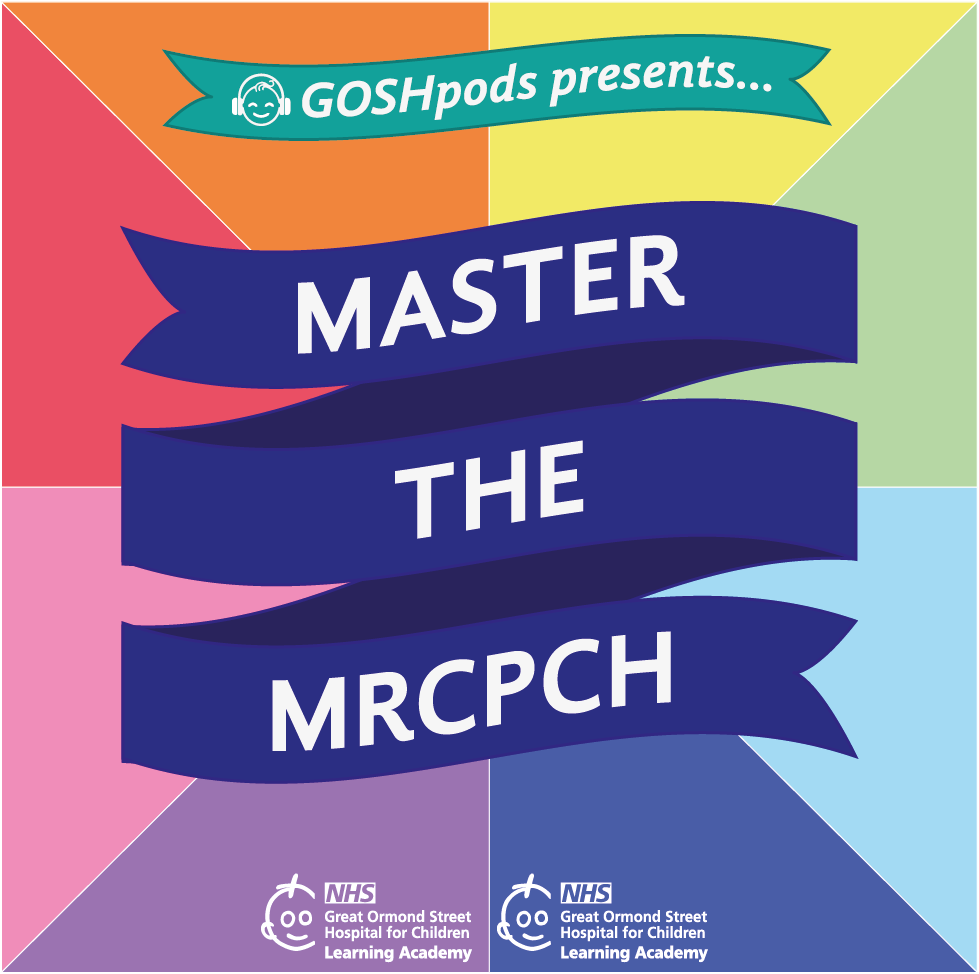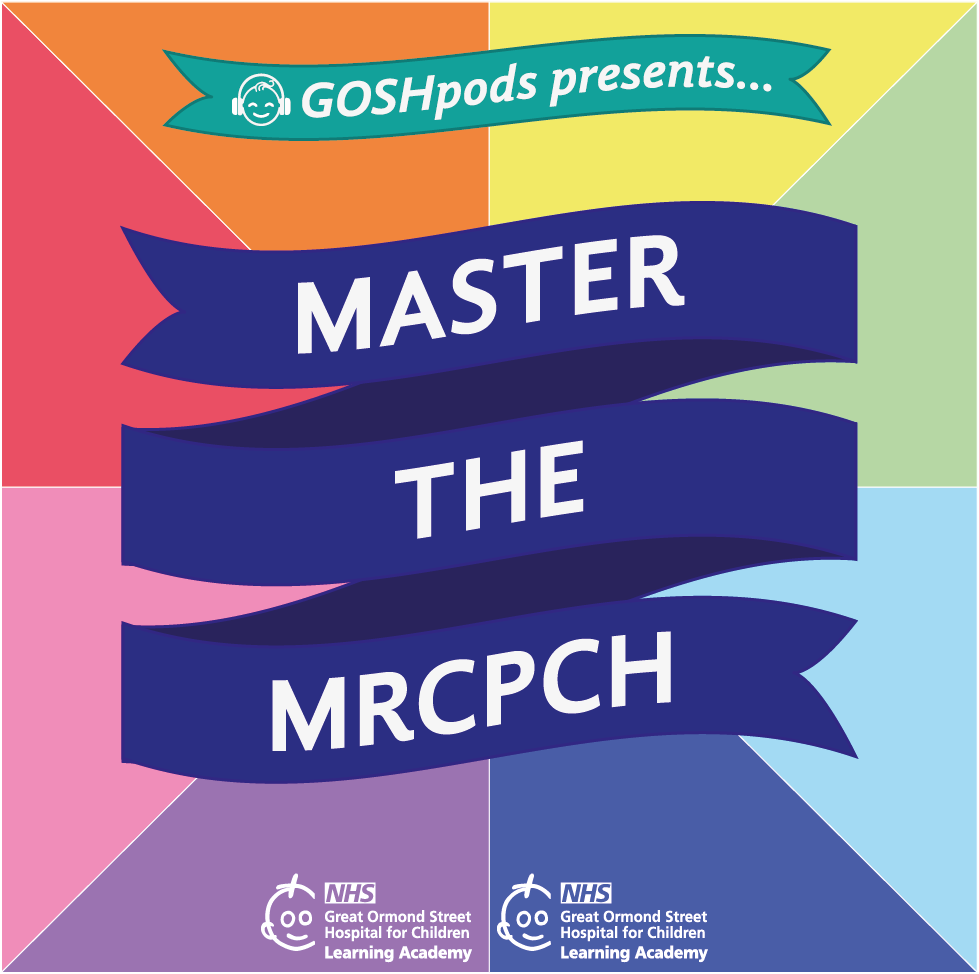This Podcast is brought to you by the GOSH Learning Academy.
SA: Hello, and welcome to Master the MRCPCH. In this series, we tap into the expertise here at Great Ormond Street Hospital to give you an overview of a topic on the RCPCH exam curriculum. So whether you're revising for an exam or just brushing up on a need to know topic, hopefully this podcast can give you the information that you need.
I'm Dr. Sarah Ahmed, a paediatric registrar and the current digital learning education fellow here at GOSH.
In today's episode, we're going to be talking with Dr. Fin Craig, a palliative care consultant at Great Ormond Street Hospital. Dr. Craig is also a member of multiple local, national and international boards, including the ethics board for Together For Short Lives. We're going to be discussing communication skills in the realm of palliative care. This topic links to the palliative care section of the exam curriculum.
Fin, thank you very much for talking with us today.
FC: You’re very welcome.
SA: So let's start with some learning outcomes. What would you like people to get out of listening to this podcast?
FC: I think the main thing is I'd like people to feel less anxious about having conversations with families and particularly when they're complex or potentially distressing discussions. I'd like people to be able to approach them without the sort of fear that a lot of people have.
SA: Yeah. Hopefully we can alleviate some of those fears with what we're going to talk about.
FC: I hope so.
SA: Because it can be quite an anxiety producing situation, but let's talk through some things and hopefully we can, we can alleviate some of those fears.
So why is this an important conversation to have? Why is communication in palliative care an important area to discuss?
FC: I think palliative care is almost 90 percent communication and communication is the real key to delivering palliative care. Communication is, is so important in palliative care because we're having to give families information that's often difficult to hear, sometimes giving the young people that information that's difficult to hear. We're juggling our emotions, their emotions throughout the conversation. All the other things that what we're discussing is going to mean to families, you know, they're often processing that at the same time as receiving information, you know, what would it mean for my other children? Oh my goodness, we've got a holiday booked. What does that mean? So they've got lots of things that they're having to contend with at the same time as this conversation. So being able to have a, an open conversation that is as relaxed as possible so that parents can actually hear the conversation, be able to ask questions, to know what questions they need to ask. Communication is just the key to palliative care, I think.
SA: Yeah.
FC: But I also think communication is the key to all medical interactions. And it always starts with a discussion.
SA: It's so important, isn't it? Even in general paediatrics, but doubly so in palliative care. And so what are some of the discussions that you would say are unique to palliative care?
FC: I would say the probably the most unique to palliative care are talking about a child's limited life expectancy, and how we might manage the dying process, and how we might look after their child and the rest of the family. Finding out what parents are frightened about, what the child might be frightened about, what are they hoping for. I think whilst other specialties will have perhaps conversations about life expectancy, they may not have the conversations in the same depth that we will need to have them in palliative care. So I think that's what makes our conversations unique. We have to go into the real nitty gritty of what anything means.
SA: And so how do you, as a palliative care consultant, approach having these conversations?
FC: Well, I would think that for me, there's sort of two rules. One is – well, maybe three rules actually. One is being authentic. You know, we're, we're meeting them as fellow humans. And I think we always need to remember that in any medical interaction, with fellow humans, with information that we need to share with each other. I need to share information with them. They need to share information with me. And we need to be authentic, not necessarily hide behind, I'm the specialist and I'm just going to tell you my specialist information that I need to tell you. It's more about, we're going to interact. I'm going to share the things I know that I need to tell you, and you're going to share with me the things you need me to know about you. And that brings me on to sort of being open. You know, we need an open and very honest approach. Honest but sensitive approach.
The second thing, which I think is as important, is listen. You know, I'm a great person for talking over people, but when it comes to, you know, children and families, you learn more by listening, actually. So you need to listen to their things that they say, but also listen to their body language, how the parents look at each other, if they're getting tearful, if they're getting angry, if they're getting stressed, if they're getting fidgety, you know, we need, to listen to everything and respond to that appropriately and sensitively.
So those would be my two, two main tips. I think my third tip, be honest. You know, I meet children who have really very unusual diagnoses. They will almost certainly have another specialist in the hospital who knows everything about that condition. But when I'm in the home, or when I'm meeting the parents, they might ask me a question, and I don't know the answer. And, you know, we need to say, actually, I don't know the answer to that question, but I can find out. Let me see if, if so and so knows. Because we can't be the expert on everything, and what parents don't like is someone kinder, sort of giving a half answer or making it up, or even worse, saying you don't need to worry about that now, or, well, knowing that's not going to make any difference. You know, we need to be saying, actually, you know, yes, you don't know the answer to something, or you're not quite sure what you're saying might be correct. Just say to them, you know, I'm not sure about this. My feeling is, but I could be wrong. Let me go and speak to so and so, and then we'll get an answer. And then follow through on that.
So I suppose, yeah, the three things for me being authentic, being honest and listening.
SA: I really like what you said about approaching people as fellow humans. I do think we forget that sometimes, that at the core of it all, when you go past that doctor-patient relationship, we are all just humans trying to muddle our way through things.
The, the honesty, I think what some people find difficult as a trainee is if someone asks a question, like, am I dying? How long do I have? Especially if a teenager or a child asked that question, how do you approach that? Does the honesty extend to that as well?
FC: Yes, it would. So, but they might not be looking for you just to say, Oh yes, you are. Had you not realized? They might be looking for you to, you know, so I would explore a little bit, particularly if it's a young person, if they say, you know, am I dying? Is that something you're worried about? Or what's led you to ask that question? That's a tricky question. Um, same as they ask about prognosis, to be honest, we never know about prognosis. You know, and I can say to a family, you know, the statistics say this, but actually your child is an individual. The child isn't statistics. So, you know, I can give you a ballpark, we could get less or more. We really find it hard to say. And obviously you say that in a, a sensitive and listening way. And, and also with around other conversations, you know, if they say, how long have I got? Is that important to you? Are there things that you want to be doing? You know, and if they say, well, yes, we want to go on a family holiday. Then you might say, well I, you're relatively well at the moment, I think you need to do it soon.
I get it asked a lot around Christmas time, families often say, should we bring Christmas forward? Even if it's like, you know, beginning of November, should we bring Christmas forward? And I think actually they could be here in January, but I'm not sure. So if Christmas is important, I will say, well, yeah, you could bring Christmas forward, but be prepared, you might have to do Christmas twice, but that will be fine. You know, so yeah, do it now, but actually you may well get it again
SA: Yeah.
FC: And most people don't mind doing two Christmases.
SA: Do you have any other tips that you would want trainees to know about?
FC: I think the other thing would be, before you go into a conversation, if we talk about having complex conversations with families, always prepare, even if you've only got less than five minutes to prepare, just always.
You know, be as calm as you can. So you might do some mindfulness exercises or whatever you do to get yourself in your calm place.
Know what information you need to tell them, and where you want the conversation to go. But don't feel you have to stick to a script because you have to be responding to people.
And also remind yourself before you go in, I've been a doctor for a while. I'm a doctor because actually I'm generally good at communicating and I'm generally good at knowing what I do. And if I can relax, I can do it to my best ability. And it will be good, because actually, you know, when you just think you're meeting the family as another human, they have a lot of information to give you about their child, you have information to give them, and you're doing it together. It's not you're going to drop a bombshell on them and leave. You're going to have a discussion with them that will be emotional for both of you, and potentially difficult for both of you. And it's, it's hard to get it wrong actually, if you approach it like that.
Or sometimes, like, the other thing is, you haven't ever got just one chance to get it right. If I say something that doesn't land right, or I can see, take a pause and say, I'm really sorry, I can see that was difficult to hear. And perhaps I should have phrased it a little different. Also, if you come away from a conversation that you feel was awful, you can go back later and say, you know, I've just been thinking about the conversation we had, I came away feeling that I hadn't done it as well as I think it should have been done, and, I'm really sorry for that. Is there anything else, you know, you wanted to ask me or that we can talk about? It's generally much better to go back to a family than to just leave it as having landed badly.
The other thing is they know we are human too. You know, we don't always do it exactly how a family would like to have it done.
SA: And I think extending the honesty to that as well and admitting that you made a mistake probably helps strengthen that relationship a little bit more.
FC: Although I don't see it as making a mistake. I wouldn't see it as making a mistake. It's just the conversation didn't land, or wasn’t received in the way you had hoped? And, you don't always know that until you've said it.
SA: It's about reframing it.
FC: Yeah.
SA: Are there any pitfalls that you think sometimes trainees get into when having these conversations and how can they go about avoiding them?
FC: I think the pitfalls are sometimes overthinking it before you go in. And then if it kind of goes off script, you panic.
The other pitfall, thinking you have to know the answer to everything. Whereas we work in teams and institutions, because we always know someone who has got the answer, but it may not be us.
Not putting enough time aside. So if you, if you're having a really busy day, and it's a conversation that could be had tomorrow, have it tomorrow, where you can sort of switch off your phone, sit with the family and really focus on that conversation. It's very irritating and distressing for families if your phone keeps going off or people are banging on the door wanting you. It's also really not good for you because you'll get more and more stressed as this is happening because you, you know, you don't want to be somewhere else. You want to be in this conversation, but you're being pulled in two directions. So always make time.
Try not to look at your watch during a discussion or look at the clock because then people think you haven't got time for them, or take your watch off. I used to never wear a watch because I once saw a consultant. The family had loved him, but he looked at his watch during the conversation and they were really upset about it. Most people won't, won't notice, but you know, try not to look at the clock. Don't look at your phone. You're totally there for the family and be engaged.
Pitfalls are not listening, or thinking you have to fill every silence.
SA: Yes, silence is something that I think we find very awkward, but there's a lot to be said for sitting in silence comfortably with someone else.
FC: Well, it allows, it gives the parents time to think, time to process what you're saying, and time to frame the questions they need to ask, to know what their next steps are.
Another thing that I always quite like to ask families in a conversation is, what does your child enjoy when they're well? Because that is a really good way to find out more about their child and actually to show that you're interested in their child as a person, not just as a patient.
SA: Let's round up with a couple of quick fire questions. So are there any useful resources that you would recommend?
FC: I think, to be honest, the most useful resource is sitting in on conversations, listening to conversations. There's some good information on the Child Bereavement UK website. They've got information about talking to families. Those would be my main ones, but I think listening, going on a course where you can practice, even getting together with a colleague and sort of going through what you might say to parents, you know, anything that gets you comfortable with having these conversations.
SA: Yeah, absolutely. And finally, what are your three takeaway learning points?
FC: They’re probably just three I said at the beginning, I think. Be authentic, be honest and listen.
SA: Yeah, absolutely. It all comes down to authenticity. Thank you so much Fin, for having this conversation with us and hopefully people will find this conversation really helpful. So thank you.
FC: Lovely. Thank you.
SA: Thank you for listening to this episode of Master the MRCPCH. We would love to get your feedback on the podcast and any ideas you may have for future episodes. You can find link to the feedback page in the episode description, or email us at
[email protected]
If you want to find out more about the work of the GOSH Learning Academy, you can find us on social media, on Twitter, Instagram, and LinkedIn. You can also visit our website at www.gosh.nhs.uk and Search Learning Academy. We have lots of exciting new podcasts coming soon, so make sure you're subscribed wherever you get your podcasts. We hope you enjoyed this episode and we'll see you next time. Goodbye.
